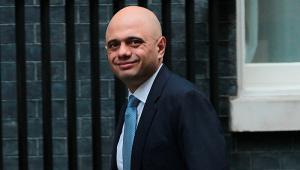In his spring Budget, Hammond acknowledged the revaluation “has undoubtedly raised some hard cases” of small firms that would see a dramatic increase in bills from next month.
Following criticism from business groups over the past weeks, the chancellor announced three specific measures to provide additional support. The biggest of these is the creation of a £300m fund for local authorities to set up their own relief schemes. This will be allocated by a formula, and will allow authorities to “target individual hard cases in their local areas”, Hammond said.
On top of the changes made by Hammond’s predecessor George Osborne to double the small business rate relief threshold from April, and £3.6bn in transitional relief already announced, the chancellor said small business who are coming out of the national small business rate relief scheme will have their bill increases capped. They would be limited to a maximum increase of £600, if this is greater than the transitional reliefs they would otherwise get. In addition, from April, a one year £1,000 business rate discount would be available for pubs with a rateable value of up to £100,000.
Hammond said local authorities will be fully compensated for the loss of income as a result of these measures from the locally retained half of business rates.
“Taken together, this is a further £435m cut in business rates, targeted at those small businesses facing the biggest increases, protecting our pubs, and giving local authorities the resource to respond flexibly to local circumstances,” he told MPs.
He also indicated that the government is considering two wider reforms to the levy, the revenue raised from which will be fully devolved to local government by 2019-20.
In the medium term, the government will look to find “a better way of taxing the digital part of the economy, the part that does not use bricks and mortar”.
And, in the shorter term, ministers would set out an approach, ahead of the next revaluation planned for 2022, to make the process “smoother and more frequent” to avoid the dramatic increases that can happen under the current system. The government would set out a preferred approach in due course.
Responding to the announcement, CIPFA chief executive Rob Whiteman stated that the additional financial support to help head off the furore over business rates revaluations was expected, adding “we will just wait to see how that will work in practice” in the context of 100% retention of business rates by local government from 2020 onwards.
Mike Cherry, national chairman of the Federation of Small Businesses, said the “direct and much-needed” support was welcome.
“This immediate relief is vital in the short term, and action on more frequent revaluations will also help. But this tax remains out-of-date, so today we call for a cross-party commission to create a simple, fair tax system for a modern economy,” he added.




















